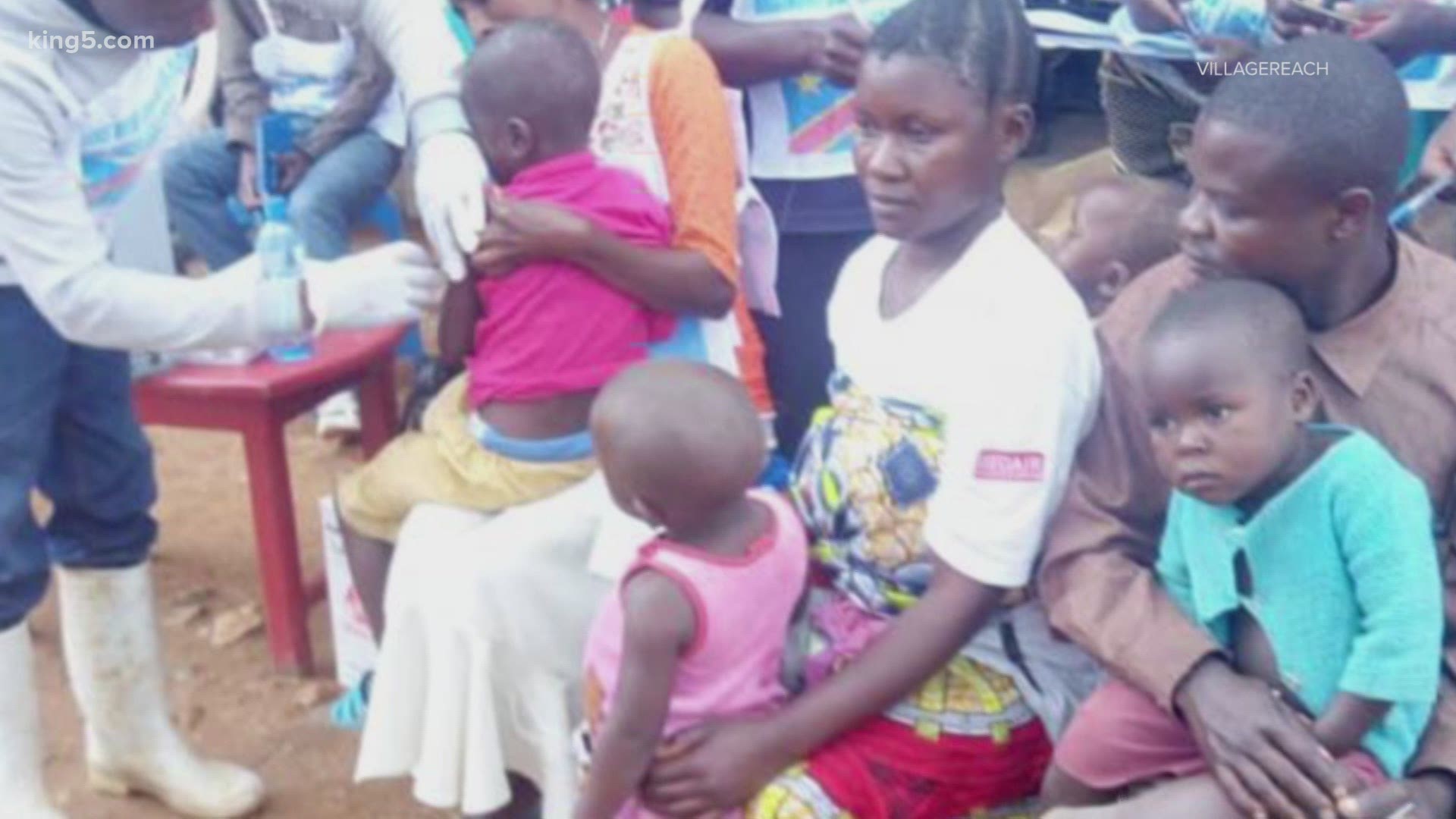As the United States struggles to roll out COVID-19 vaccines to the public, some are turning to Africa for advice on how to conduct mass vaccinations.
VillageReach, a nonprofit logistics and communications contractor working in Mozambique, Malawi and the Democratic Republic of Congo (DRC), is also assisting Seattle’s coronavirus vaccination effort. Lessons learned in Africa can be useful in vaccinating mass numbers of Americans, too.
"There is so much that we can learn from our colleagues there," said Jessica Crawford, who leads immunization programs for VillageReach. "There have been a number of years of vaccination campaigns, and they have grown stronger and stronger."
Outbreaks of diseases like polio, measles and cholera have forced VillageReach and others to think quickly and more efficiently.
In 2017, the United Nations Children's Fund vaccinated nearly 5 million children in Nigeria against measles. In that same year, polio vaccines went to 116 million African children in a matter of days.
"Very small details can make a big difference, and have a big impact," said Freddy Nkosi, country director in the DRC for VillageReach.
Nkosi suggests training more vaccinators, coordinating everyone delivering shots and getting better at logistics to improve vaccination efforts. That includes more centralized leadership.
"We involve community leaders," explained Nkosi. "We involve religious leaders so they can speak to their community the best."
Nkosi suggested using celebrities to help spread the COVID-19 vaccine message too. In Africa, some teams go door-to-door administering vaccines.
"Africa is still facing a lot of challenges, but what we've learned in the past helps us today," said Nkosi. "This is a time of global solidarity."

